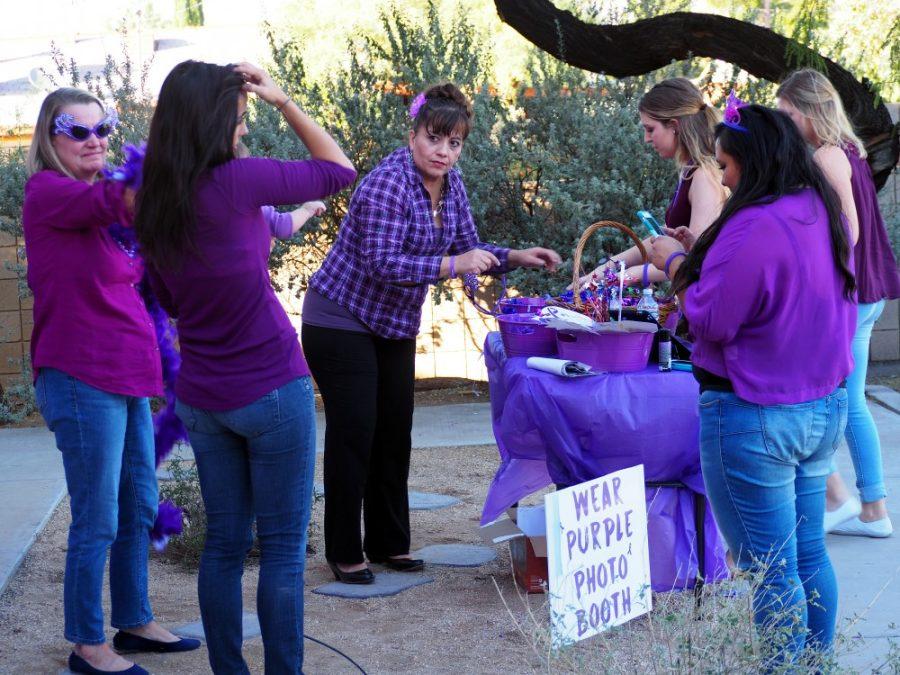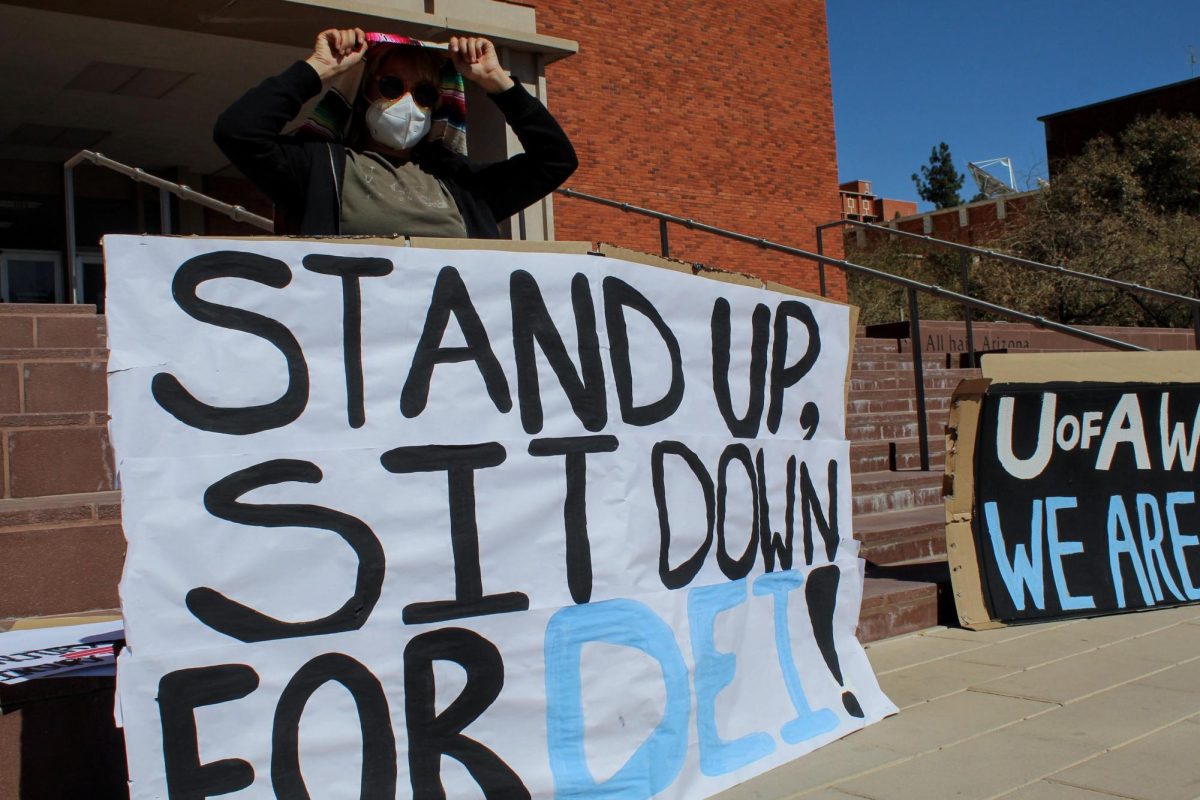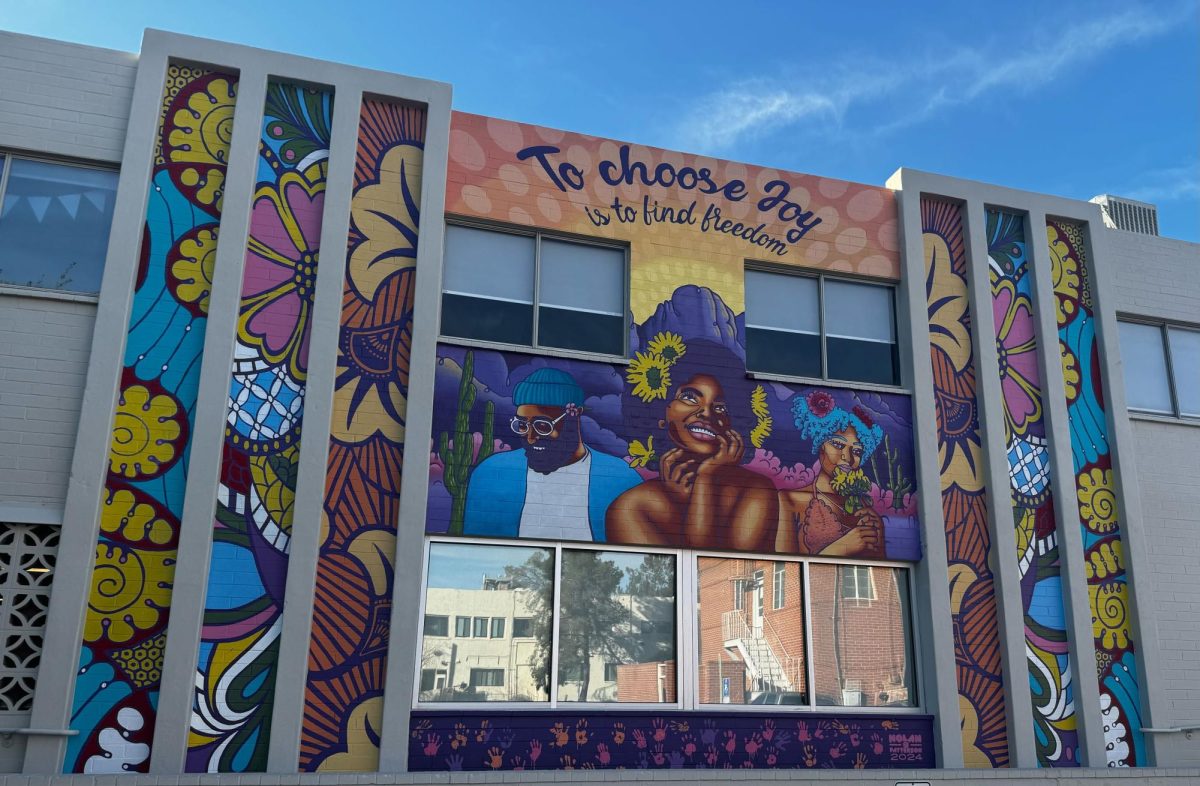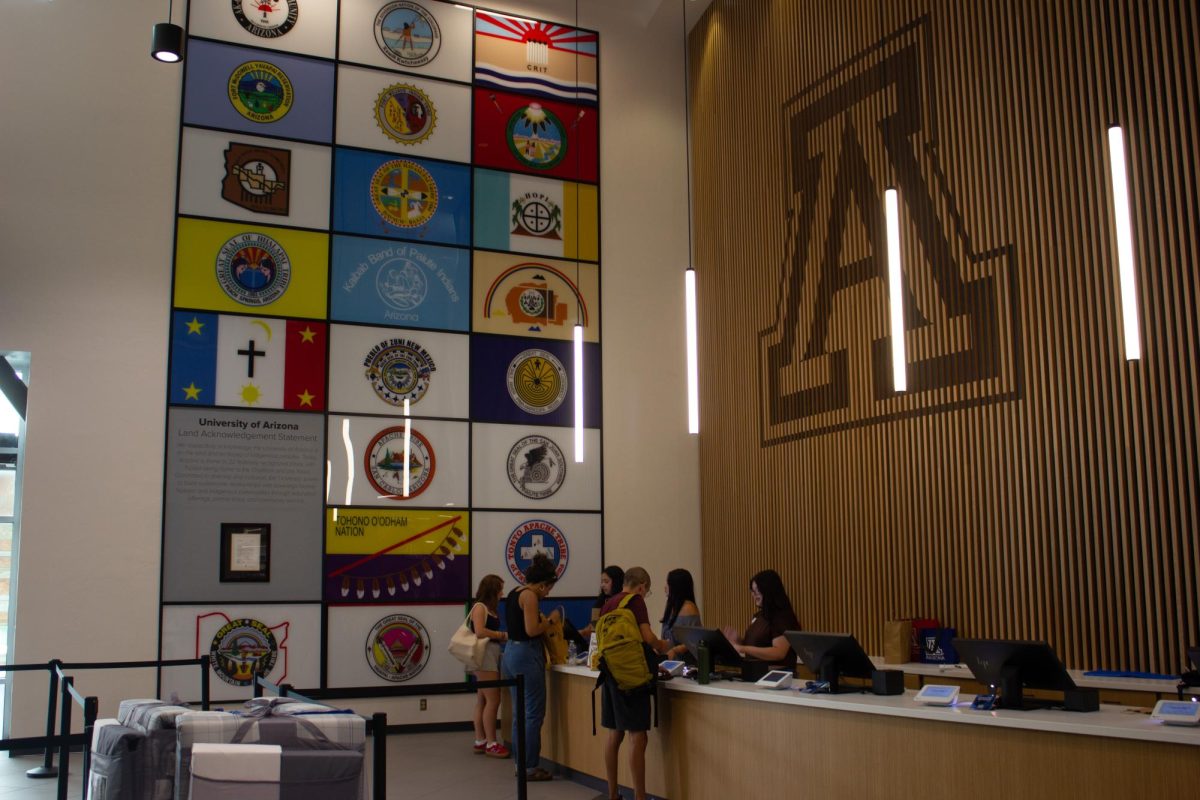Brittany is a UA student who studies English literature and creative writing. She will be graduating from the UA in 2017. She is a mother and a survivor of domestic violence.
Brittany, who asked us not to publish her real name for her own safety, experienced domestic violence for the first time over 20 years ago as a teenager. She said she was married to her ex-husband for 10 years and he became physically, verbally and sexually abusive after the couple’s third daughter was born. Since her divorce, she has dated people, but has again experienced domestic violence.
“He would say things like, ‘Maybe if you lost a little more weight, I’d be willing to take you out more often,’” she said.
Brittany said shouting matches from an ex-boyfriend had become so regular and disruptive that her neighbor would come to the door to make sure she was not in danger.
“To be honest, I learned to tune out shouting,” Brittany said.
Accompanied with this type of verbal abuse, Brittany said physical abuse often came in the form of sexual assault. She said if she was not willing to be intimate with her partner, he would rape her. She said she would be thrown and held down without her consent.
“I would have bruises all along my arms from being pinned down,” Brittany said.
RELATED: UAPD Campus Safety report shows increase in stalking and drug violations
She has also sprained her wrists multiple times from being pulled violently.
In the situation with her ex-husband, Brittany often sacrificed herself to his abuse in order to spare their children the abuse. By purposely breaking a glass or telling him something she knew would upset him, she said he would project his anger onto her instead of them. Because of her, she said her ex-husband has never been able to physically abuse their children.
“He was also financially abusive — he controlled all our finances,” Brittany said. “Even if I wanted to leave, I didn’t have the resources to be able to do anything and take my kids into a safe environment.”
Financial stability often becomes a problem among domestic violence victims, according to the National Coalition against Domestic Violence. The NCADV reports that, collectively, “victims of domestic violence lose a total of eight-million days of paid work each year.”
After Brittany gave birth to their third daughter, she said she was put on bed rest because she had a mild heart attack during labor. Because of being on bed rest, she gained a lot of weight. This piqued a new level of verbal abuse from her ex-husband. He would say to her, “Fat slob, why don’t you get your ass up and do something,” and “You need to get a job because you’re eating us out of this house and home,” according to Brittany
“We’d be in bed and he would literally push me out of bed and say, ‘Go do something with the children, I think I hear one of them crying,’” Brittany said.
It wasn’t until her ex-husband lost his job and her family moved in with her parents temporarily that Brittany was able to escape the abusive marriage and get back into school. She now lives in a residence hall and the children live with her parents.
When she started going to school at the UA, Brittany started counseling at Counseling and Psych Services, talking to people going through similar problems.
“I’m seeing that me sharing my story can help people realize they’re not alone in this,” Brittany said.
Breaking the silence
Domestic Violence Awareness Month is coming to a close, but the UA and college campuses nationwide continue to struggle with the issue.
College students aren’t strangers to domestic violence incidents. They can happen between roommates, students in romantic relationships, friends, coworkers and parents, among others.
The UA campus offers numerous support programs this month and all year round to aid domestic violence survivors like Brittany.
The Women’s Resource Center, located on the fourth floor of the Student Union Memorial Center, offers various resources for domestic violence survivors.
UAPD collects new items through its Starting Over Supplies for Survivors drive. The drive collections will be donated to the Emerge! Center Against Domestic Abuse, according to UAPD officer Rene Hernandez.
“We don’t want people to live in silence because it can affect anybody,” Hernandez said.
Minnie Almader is a sexual assault and trauma treatment counselor for Counseling and Psych Services.
Almader assesses patients for physical and emotional reactions to trauma and teaches them a variety of coping strategies.
“I think college campuses are doing a pretty good job talking about sexual assault, and I see that’s a more visible topic right now,” Almader said. “I think domestic abuse where there’s physical or emotional violence is talked about less.”
Almader said she stresses to students that healthy relationships should be where you both trust each other, you both have fun and you both have boundaries in place.
Rosanna Curti, the assistant dean for Student Assistance and Accountability, said the safety of the student is the first priority when a student either self-reports a domestic violence incident or a report comes in from UAPD.
A Title IX coordinator will reach out to students and explain their options for the next possible steps once any changes are made to the student’s living arrangements or class schedule for safety.
Curti said the majority of incidents that aren’t self-reported come from Residence Life, specifically from resident assistants observing a problem situation, and the majority of self-reported incidents come directly from off-campus students.
“I don’t think a lot of our students even know what being in an unhealthy relationship looks like,” Curti said.
Curti said she thinks education surrounding domestic violence and healthy relationships versus unhealthy relationships needs to be more relatable to students. Specifically, she wants to introduce education on domestic violence warning signs on social media.
“I think we really need to think of quick and easy ways to show people what red flags or concerns can be,” Curti said. “We’re very reactive — before you get to this stage let’s even try to prevent it.”
Curti is working with another staff member to create an educational social media program that she said should be completed around early November.
“You can’t learn how to be in a healthy relationship,” Brittany said. “Nothing you read, watch, hear or even do can teach you any sort of steps or formula. But what you can learn is how to walk away from a toxic relationship. And that is the most important thing you could learn, for the sake of self love and care.”
Samantha Wallace, the coordinator for youth and activity programming at Campus Recreation, said the program’s military combat arts classes could help teach people how to better protect themselves if they ever face an aggressor.
“It certainly doesn’t hurt to be prepared and take the time to learn something,” Wallace said.
Fiona Davey, a public health junior and one of the student directors of the Feminist Organized to Resist, Change, Empower organization on campus, said FORCE has planned three different awareness-promoting events this month with Students Promoting Empowerment and Consent.
“I think it’s really important that we all take action to talk about it in a more visible way and that we don’t think it’s victims’ faults,” Davey said.
The Emerge! Center Against Domestic Abuse held a support celebration for domestic violence awareness, Paint Pima Purple, on Oct. 20, where everyone could wear purple, take pictures at a photo booth, write their domestic violence stories on T-shirts for the Clothesline Project and make donations to the “Starting Over Supplies” drive.
Olivia Lawless, the philanthropy chair for the Alpha Chi Omega sorority, said Alpha Chi Omega raised around $12,000 for the cause from its most recent event, Pizza Pie with Alpha Chi. The sorority’s other major event held during the school year, Liar Games, raised around $7,000 for the cause last spring. Lawless said the sorority does a few smaller events throughout the year as well.
Lawless said 80 percent of the money raised goes to the Emerge! Center Against Domestic Abuse and the remaining 20 percent goes to the Alpha Chi Omega Foundation.
“A lot of times, it could be someone that you’re walking by down the Mall that you would never know, but maybe something with Emerge! has helped them out,” Lawless said.
Even the young woman who delivered the pizza for Pizza Pie with Alpha Chi told Lawless she was excited to help them because she had lived in the Emerge! housing units for three years while getting out of an abusive relationship.
“I think there generally isn’t enough education out there at all on domestic violence, but especially on a college campus,” Brittany said. “I think one of the biggest problems we have is that a lot of us when it first starts, we don’t know it’s domestic violence.”
Brittany said she thinks there is a tendency on college campuses to “push alcohol and drug problems under the rug” by labeling people as partiers, when in reality those people might be trying to cope with some form of abuse.
“One day after a boyfriend decided to blow up at me, I started drinking from Friday night until Sunday night,” Brittany said. “It was constant and constant — part of me thinks that I might have been trying to actually let the drink kill me.”
Brittany said her current boyfriend is not abusive. She is on track to graduate next year as a double major with an internship and a role in student government under her belt.
Brittany has one piece of advice for other students experiencing domestic violence.
“Find those little moments of happy because they go so long and so far in making sure that you keep your mind right.”
Follow Jessica Suriano on Twitter.









